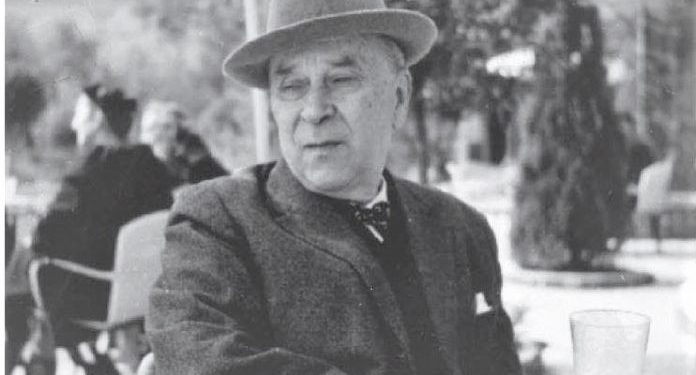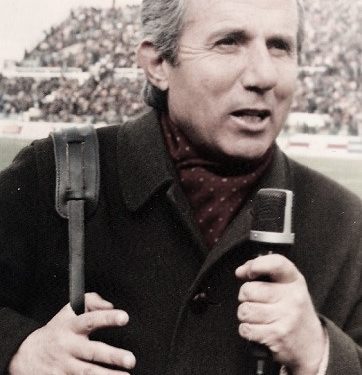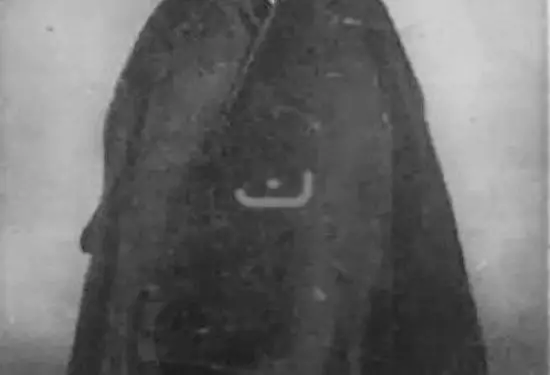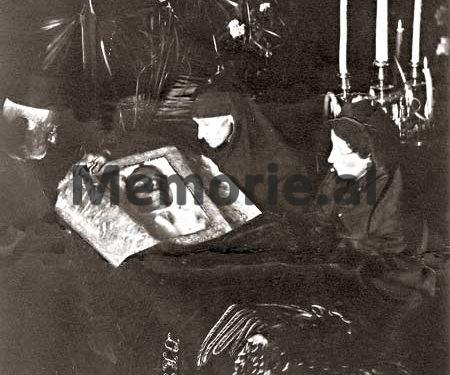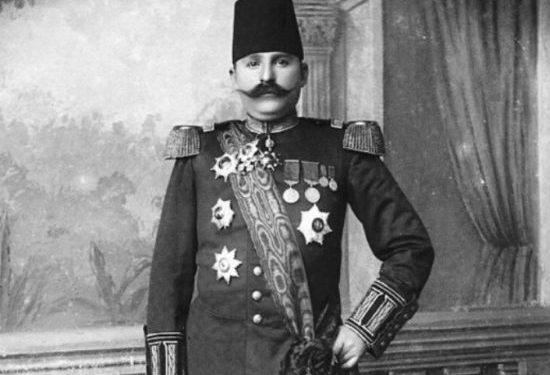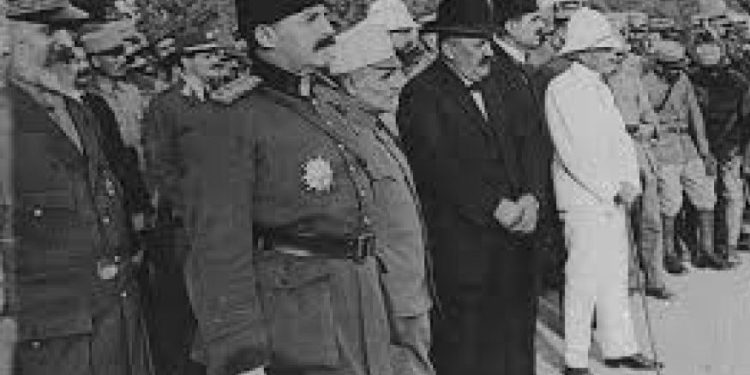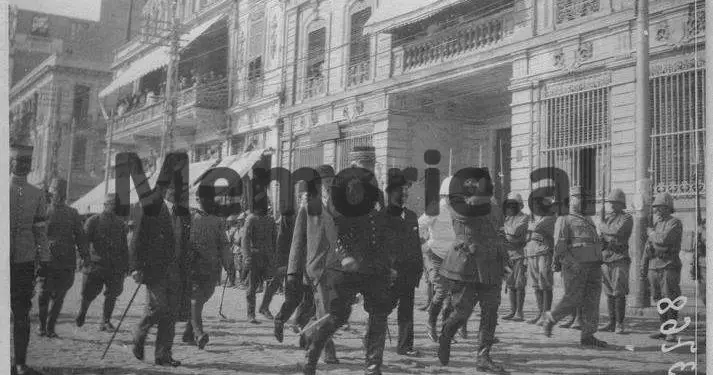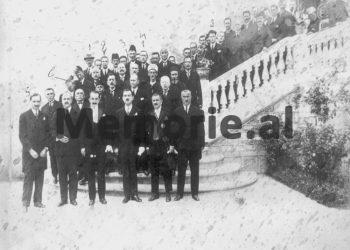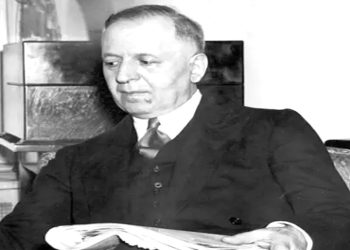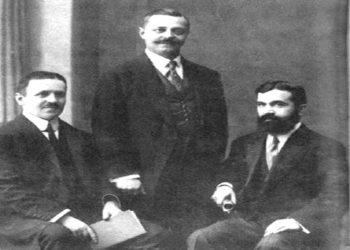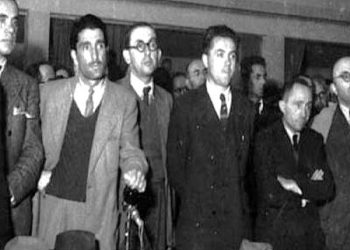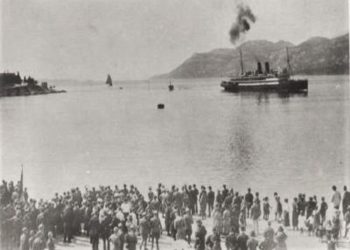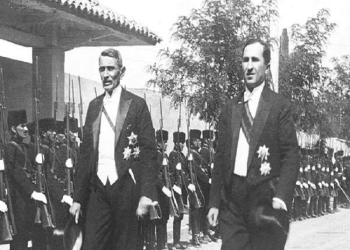“Why did the Bey of Vlora err when he calls Avni Rustemi a ‘karagjoz’ (clown/buffoon) and a ‘criminal’?”
Memorie.al / The publication of the book “Memoirs” in two volumes (1885-1912 and 1912-1925), written by Eqrem Bey Vlora, “the scion of one of the greatest families of Albania and the Ottoman Empire, a close cousin of Ismail Qemali, a witness-protagonist of several extremely important decades of Albanian history, one of the most cultured people of the time,” as the well-known publicist Pirro Misha writes in a short afterword, has aroused great interest among readers. Facts, characters, events experienced by the author himself, accompanied by archival documentation for such a long period, fill gaps that are not found in history books, which further increases the value of this work.
Without aiming to further list the values of this voluminous and interesting book, I find it reasonable to dwell on some inaccuracies and entirely subjective and tendentious interpretations by Eqrem Bey Vlora concerning the figure of the great patriot Avni Rustemi, which moreover, have no historical basis.
The Assassination of Esat Pasha Toptani in Paris
Driven by personal resentment, the author in question casts mud on the figure of Avni Rustemi, especially on his historic act: the assassination against the notorious traitor, Esat Pasha Toptani (June 13, 1920). “That Esat Pasha would have deserved the gallows in any civilized country is undisputed,” he writes in the book. “But that he was eliminated in such an unworthy manner, this does not honor the members of that government at all. Murder, whatever the political motive, remains murder.” (Eqerem Vlora, “Memoirs,” p. 166).
However, the arguments we will bring below, extracted from this very book, will prove that the physical elimination of Esat Pasha was an essential necessity for the fate of Albania. On pages 162-163 of his book, Eqrem Bey Vlora writes: “Immediately after the formation of the new government of Tiranë, all Albanian regions recognized its authority (February 20, 1920). Nevertheless, large areas of the country still remained under foreign occupation: Shkodra (the city), Korça, Pogradec under the French, the regions north of the Drin under Serbian rule. Vlora and some other strongholds, as mentioned, under Italian dependence!” (p. 163).
The author continues below: “Meanwhile, Esat Pasha Toptani, residing in Paris, ordered his men in Central Albania to gather and, when the opportunity arose, overthrow the government. Faced with this new danger, the government tried to persuade the Esatists peacefully that the violent overthrow of the government would reawaken the desires and greed of the neighbors to seize Albanian territories, and this could be a great danger to the existence of free Albania.” (ibid).
Later, Eqrem Bey Vlora writes that the government sent a delegation to Paris, led by Faut Bey Toptani, to negotiate with Esat Pasha, while the Esatists “expanded their movement throughout Central Albania (from Rrogozhina to the Mat River), surrounding Tiranë.” (p. 163).
Not only this, but the Esatists suddenly began to take violent actions. They cut telegraph and telephone lines, stationed armed men on bridges and mountain passes, and when the government began to take strict measures, they, under the command of Osman Bali, even surrounded Tiranë. Osman Bali was one of Esat’s most important henchmen, the one who had organized the murder of the Turkish general, Hasan Riza Pasha, in Shkodër. Once again, the Albanian government tried to negotiate with the rebels. Meanwhile, the problem solved itself with the killing of Esat Pasha Toptani, in front of the “Continental” hotel, on June 13, 1920.” (p. 166).
As Eqrem Bey Vlora himself admits (in these pages of his book), the danger that the new Albania faced from Esat Pasha Toptani and his gangs was extremely great, to the point of suffocating it in the cradle. Let’s not forget that Esat Pasha was also an ally of France. Expelled from Albania after the peasant uprisings and deep popular hatred, he was forced to flee to Italy, where he was grandly received, and from there, with a few hundred bandits recruited by Osman Bali, and with the approval of the French Minister of War, General Foch, he joined the Army of the Orient in 1916, headquartered in Thessaloniki, commanded by General Sarrail, which was fighting against the Austro-Hungarian armies during the First World War.
After the end of this war, as is known with the victory of the Entente, and thus France, Esat Pasha went to Paris and became a tool of the ambitions of the French government, which aimed to place him at the head of the Albanian state, so that, having already extended its influence over Yugoslavia by placing its ally, Prime Minister Pašić, in charge, it could do the same in Albania. Furthermore, aided by the French government, Esat Pasha presented a memorandum at the Paris Peace Conference in Versailles, claiming to be the legitimate head of the Albanian government. This, then, is why Esat Pasha Toptani had to receive the punishment he deserved. And, since he would not leave Paris, this punishment could only be inflicted there. And, necessarily, only through an assassination. And this assassination was carried out with unparalleled patriotic courage by the 25-year-old youth, Avni Rustemi.
Eqrem Bey Vlora against Avni Rustemi
However, Eqrem Vlora does not agree at all with this high act of Avni Rustemi, and in his book, he writes this about him: “A young man named Avni Rustemi, one of the most unsuccessful students who try to vent their desire for revenge with political heroism, born in Libohovë, the son of a qehajai (steward) of the Libohovë-Asllan Pasha household, abruptly ended Esat’s adventurous life with a treacherous murder. This young man, who wanted to make a name for himself in Albania with this murder, was merely a tool in the hands of Esat Pasha’s opponents. They provided him with the necessary means for this murder and simultaneously undertook his defense before the French court. Who these opponents were, is difficult to say today. It can only be said with certainty that almost all nationalists, and even some Beys (unfortunately including those who had benefited from Esat), approved of the killer and the killing. Among them, Ahmet Bey Zogolli was in the forefront.” (p. 166).
This statement has several tendencies that are as perverse as they are inaccurate, for many reasons. Avni Rustemi was not an unsuccessful student, considering that he had brilliantly graduated from the Italo-Arbëresh gymnasium of San Demetrio Corone, in Calabria, and had started higher studies in pedagogy in Rome, which he did not manage to finish because he became involved in the patriotic movement. Secondly, his killing was not treacherous. On the contrary, it was an extremely brave killing, dictated by the circumstances for the fate of Albania. The Pasha had brought so much misfortune to the country that the decay was leading to dissolution. Esat had killed many people from behind, not only the defender of Shkodra, Hasan Riza Pasha, and his victims and traps threatened the future of the country, while cooperation with the Serbs and Greeks was the motto of his anti-Albanian tactics.
Avniu did not kill Esat Pasha for revenge, from behind, hidden somewhere, but confronted him at the entrance of the “Continental” hotel, from which Esat Pasha was exiting, shot him twice in the chest, and could not shoot him more because the gun jammed. He stood still and threw the weapon on the ground; according to a plan studied down to the smallest detail. Avniu could have killed him in the evening, in front of this hotel or somewhere else, hidden, while he strolled on “Castiglione” street, in front of the “Continental” hotel, especially from the policemen who severely beat him, mistaking him for an ordinary criminal. And this is because, during the investigative and judicial process, he would maintain with excellent composure the thesis that he had not come to Paris to kill Esat Pasha, but to study.
However, finding himself suddenly in front of this traitor, while waiting for his secretary, he was shocked, it seemed to him that he read on his forehead the atrocities he had brought upon Albania, and in the condition of this shock, he could not restrain himself and shot him with the weapon he carried for self-defense. This was the plan Avniu had prepared, which he carried out until the end.
Avni’s act was rare, because the indictment of the prosecutor Bloche Laroche “for premeditated murder,” which, according to the relevant articles of the French Penal Code, demanded the death penalty, hung over his head from September 9 until December 4, 1920, when the trial concluded with his acquittal, when it was known that he could even be sentenced to beheadings by guillotine. Eqrem Bey Vlora is completely uninterested in Avni’s stance and bypasses it, as if it had no value whatsoever.
Who Defended and Freed Avni Rustemi?
Thirdly, it was not “opponents” who undertook the defense of Avni Rustemi before the French court. It was the Albanians exiled in America, who, from their savings, collected 5,000 dollars, an extremely large sum for that time when the dollar had much value, to give to the French lawyer, De Monzie, who undertook Avni’s defense during the trial.
Eqerem Bey Vlora is right only on one point when he says: “Who these opponents were, is difficult to say today.” Indeed, that is true. More than 100 years have passed since that day, and no one knows who sent Avni Rustemi to kill Esat Pasha in Paris, because not a single document is found in any archive, or at least they have not been published in the press.
Whether during the trial or when he was released from prison and returned to Albania, Avniu did not reveal anything to anyone about his patriotic act. Despite the insistence of the judges, he simply called it personal, in order not to implicate the new government of Tiranë, because such a statement—that he had actually been sent by it – would have serious interstate consequences. Thus, those who sent him could have been those whom Eqrem Bey Vlora calls nationalists, i.e., those who fought for Albania, and did not sell it like Esat Pasha.
Reading the book “Memoirs” by Eqrem Bey Vlora, another low and absurd statement is surprising, when he expresses astonishment at how “French justice, with a surprising manipulation of the law, acquitted Avni Rustemi, and that the Albanian government declared him a hero and made him a deputy, when this treacherous murderer, therefore, strutted around Tiranë and was cheered everywhere, like some savior of the homeland. This example showed all Albanian boys how one could become a great man through a shot fired from behind, like a coward!” (p. 215).
Why did French justice release Esat Pasha’s assassin?!
A learned man like Eqrem Bey Vlora should not have allowed himself such a crude mistake when he underscores the words “manipulation of the law” by French justice. He should have known that the accusation for the death penalty was given by the prosecutor Bloche Laroche, and that the verdict, as in every other case, was given by the jury, which was composed of people from various professions, and who judged the act of Avni Rustemi as an expression of the justice of the Albanian people, to eliminate a monster who sought, with the help of foreigners, to stifle Albania.
These simple members of this jury apparently recognized the fact that dozens of telegrams had arrived at the address of the Prosecutor’s Office and the Court of Jena in Paris and the French newspapers, from Albania and other countries, such as Bulgaria, Romania, America, in the name of the exiled Albanians, demanding the release of Avni Rustemi, and that after this great heroic act, Albanians everywhere celebrated. Let’s not forget that great French personalities also stood up in defense of Avni Rustemi, including René Pio, Justin Godart, and the great Albanian actor of world fame, Aleksandër Moisiu, etc.
From all these telegrams sent to the French judicial bodies, I will list only one, the one that the people of Vlora – the author’s birthplace, ironically – sent to the Paris court: “The people of Vlora, in a magnificent rally held today, decided to appeal to the high conscience of the Paris Court. It now expects the fervent justice of the Albanian people to be taken into consideration, to set free our student, Avni Rrustemi, who performed a patriotic act by shooting Esat Toptani, and freeing our homeland from a destructive evil.”
Nevertheless, some intervention by French justice at the last moment can also be hypothesized. And this is based on Avni’s unyielding stance during the trial, where he unmasked Esat Pasha, on the political and moral level, just as the powerful voice of the Albanians in Albania and everywhere they were, had unmasked him. When, in December 1920, all foreigners had been expelled from Albania, official France deemed it reasonable not to kill Avni Rustemi, not because it sympathized with him, but because it wanted to present itself to the world as a country that adheres to high democratic principles. It is not worth dwelling on the banal phrases about Avni Rustemi: “treacherous murderer” or “a shot fired from behind like a coward,” which are as untrue as they are disgusting, a pity that they came from the pen of Eqrem Bey Vlora, in his book “Memoirs.”
Rustemi, the Ideator of the Assassination Attempt on Zogu, on August 23, 1923
Moving further: On February 23, 1923, Ahmet Zogu was assassinated in parliament, from which he emerged lightly wounded. The assassin was Beqir Valteri, who, according to the statements the author claims Valteri later told him himself, had been tasked by Avni Rustemi to eliminate Zogu. Regarding this event, Eqrem Bey Vlora continues to recount his memories: “Ahmet Zogu knew who the organizers were. He hired a man in Tiranë, who had rented two flour mills from Esat Pasha for years (and was himself a known Esatist), who shot with a revolver and seriously wounded Avni Rrustemi, the killer of Esat Pasha Toptani and the main instigator of the assassination attempt against Zogu. (This was Isuf Reçi, who shot Avni from behind and disappeared. He was killed by the partisans in 1944). The wounded Avniu died two days later, in the Tiranë hospital. This was an excellent act of revenge, which not only coincided with the rules of the Albanian Kanun (code of honor/vendetta), but also served another purpose: it reconciled two political currents, Esatism and Ahmetism, which had been separate until then.” (p. 214).
Unfortunately, in these lines, Eqrem Bey Vlora proves to be contradictory and cynical in his partisanship, taking the side of the killer. Contradictory, because on page 166, as we saw, he writes about the killing of Esat Pasha: “Murder, – whatever the political motive, and remains murder.” (p. 166). Whereas for the killing of Avni Rrustemi, the murderous hand is not considered as such. Cynical, because he calls this murder an excellent revenge (?) and, moreover, one that unites Esatism with Ahmetism. In this case, he does not honor Ahmet Zogu at all, who, in truth, after becoming King, besides some political murders, including the assassination attempt against Avni Rustemi (1924), against Luigj Gurakuqi (1925), and Hasan Prishtina (1933), is very far from the hated figure of the executioner, Esat Pasha Toptani.
We continue: “But the killing of Avni Rustemi was simultaneously the spark that ignited the already smoldering fire of old, multi-year hatred between the democratic and aristocratic wings. Hatred, like a crossroad, separated Ottoman-feudal-Muslim Albania from the national-socialist-democratic Albania. And in the existing circumstances, this development would inevitably lead to the establishment of a dictatorship that would last 15 years.” (p. 214).
In this case, despite the fact that in the pages of the book he speaks contemptuously of the national-socialist-democrats, who were Fan Noli, Luigj Gurakuqi, Stavro Vinjau, Avni Rustemi himself, Jashar Erebara, Agjah Libohova, and many others, he was right, especially since all these figures were for the construction of a new Albania, far from Anatolian obscurantism. “A comedy,” continues Eqrem Bey Vlora below, “was also the ceremony of honor before Avni Rustemi’s open coffin, at the Tiranë hospital. All those who called themselves ‘the people’ and ‘democrats’ passed before the coffin of this criminal karagjoz, whom they absolutely wanted to raise to the pedestal of a national hero and martyr.”
Rustemi a “Political Karagjoz” and “Criminal”?
The pathological hatred towards Esat Pasha Toptani’s killer and one of the greatest figures for an anti-feudal, anti-Bey, and anti-Agha Albania, led Eqrem Bey Vlora to the point of calling Avni Rustemi a “political karagjoz” (?!). And he is the first and only one so far to blacken his figure. The author continues: “In turn, the leaders of the democratic party climbed near the coffin and poured out streams of their words, not caring at all that these poses are completely alien to the people, because they violate their customs and understanding of human dignity. This display lasted for a whole week in Tiranë and then in Vlora, much to the amusement of all the children. In this sequence, the democratic party suddenly decided to transport the deceased to Vlora!” (Ibid).
Here, Eqrem Bey Vlora’s hatred for Avni Rustemi, and then also for the Democratic Party, manifests itself in the most perverse dimensions. An erudite like he truly was, should never have allowed himself to call Avni Rustemi, no matter how much of an opponent he was, a “karagjoz, criminal,” when Fan Noli and Luigj Gurakuqi, who had more culture than the Bey of Vlora and, moreover, were writers and researchers with many works, considered it an honor to be near him, and when an entire people respected him.
It is enough to look at the photographs published in the press of the time, besides the many articles, to be convinced that there were thousands of citizens of Tiranë who gathered in the square, today called “Skanderbeg,” to escort Avni Rustemi’s coffin from Tiranë to Durrës, and from Durrës, by ship to Vlora, where thousands of others, who came from all four corners of Albania, participated with deep sorrow in the burial ceremony of their dear son.
Avni Rustemi was a son of Albania, and also a son of martyred Kosovo by the Serbian-Montenegrin chauvinists, whom he had unmasked in so many speeches in Parliament, which Eqrem Vlora, being a deputy, had heard, but chose to turn a deaf ear to in these memoirs. Therefore, Kosovo, a part of Albania, separated by the atrocities of history, mourned Avni, who was also its deputy, and honors him with the greatest respect. Concluding, without denying the historical values that Eqrem Bey Vlora brings in his book “Memoirs,” we are obliged to affirm that the statements we quoted above, concerning the figure of the wise patriot Avni Rustemi, are very far from historical truth, clothed in malice and subjectivism that do not honor the author. Memorie.al




